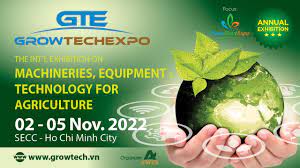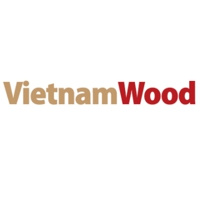
Thai rice farmers both increase productivity and reduce production costs by applying laser leveling technology. Photo: BKP
Sawanee Phorang, a 44-year-old farmer from Doem Bang Nang Buat district, Suphan Buri province (Thailand), recently changed her traditional rice transplant farming method by applying laser leveling. (LLL), a cutting-edge technology that she claims has "completely changed her life".
As a partner of the National Action Project on Thai Rice (Nama) since 2020, Ms. Phorang has been trained to reduce production costs and increase rice yield through the concept of dry rice farming. and wet.
She was also taught how to use fertilizers properly and not to burn rice straw after harvesting rice to clear 60 rai of her family's field, before sowing the new crop with LLL technology.
"When we adapted the leveling of fields with this new technology, we cut fuel costs in half. It also perfectly managed the land by facilitating water pumping. into the rice field, which also saves us 50% of the time," said Ms. Phorang.
According to this farmer, all the new rice growing techniques they have learned from the project not only bring better profits to the farmers but also help the environment. "We feel very happy with our rice farming to contribute to 'saving the world' just by changing the way we grow crops," added Ms. Phorong.
According to agricultural extension experts, LLL rice production technology can help reduce investment costs from 5,000 baht/rai (US$143.8/0.16 ha) to only 3,500 baht/rai. In addition, the yield of rice grown with new technology also increased from 800 kg/rai to 1,000 kg.
And what's even more special is that rice farmers under the project can sell their carbon credits to Europe for 400 baht per rai.
These new developments are good news for rice farmers in Thailand, especially in the context that most are struggling because explosive inflation has pushed up commodity prices and rice production costs.
According to the latest estimates, half of the farmland in Thailand is used to produce rice, which accounts for nearly 55% of the agricultural sector's emissions.
The country also ranks as the 4th largest emitter of rice-related greenhouse gases in the world, particularly of methane which has a global warming potential 28 times higher than greenhouse gas. carbonic.
The kingdom has already made an international commitment to be carbon neutral by 2050 and zero greenhouse gas emissions by 2065, with strong efforts to reduce greenhouse gas emissions from operations. caused by humans.
Therefore, this will be forced to expand into the farming sector, which needs to switch from traditional farming methods to more modern methods based on advanced technology as well as combined with propaganda, and better education.
Accordingly, the Thai government, with the support of the German development agency GIZ, has implemented the Nama project to encourage local smallholder farmers to implement sustainable low-emission rice production.
The main partners are the Ministry of Agriculture and Cooperatives, the Ministry of Natural Resources and Environment, and the Bank for Agriculture and Agricultural Cooperatives (BAAC), under the Ministry of Finance.
The project is being implemented in six provinces in the Central Delta: Chai Nat, Sing Buri, Ang Thong, Ayutthaya, Pathum Thani, and Suphan Buri. The goal of the project is to strive for 100,000 rice-growing households with a total area of 2.8 million rai. The project also aims to reduce emissions equivalent to 1.7 million tons of carbon dioxide within five years of its launch in 2018.
In order to encourage the expansion of LLL technology, GIZ has partnered with BAAC to sign a grant of €8.4 million (306 million baht) to implement the co-payment roadmap. The goal is to provide financial support packages to farmers and businesses in the agribusiness industry to access land preparation, LLL services, and crop management, essentials for smart rice farming in the climate in Thailand.
The combination of LLL technology and alternating wet and dry production methods reduces methane emissions by 30-70% while increasing significantly, said Reinhold Elges, director of GIZ in Thailand and Malaysia. production efficiency, leading to higher income for farmers.
“It is a win-win, win-win solution,” said Mr. Elges, to achieve the goal of being carbon neutral by 2050 and zero greenhouse gas emissions by 2020. 2065, Thailand must provide farmers with greater access to advanced technology, adding that LLL technology is the perfect fit for this.
Meanwhile, Mr. Chalat Bhawangkananth, director of Chokchai Agricultural Machinery, said that the above financial supports are very important for the farming sector, especially those who want to invest in farming. technology segment.
This businessman said that his business is now thriving because Thai farmers are very interested in applying this new technology.






.png)